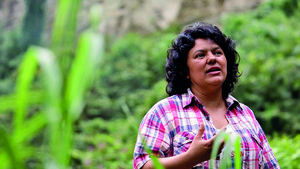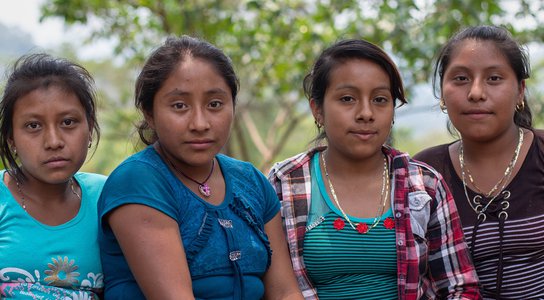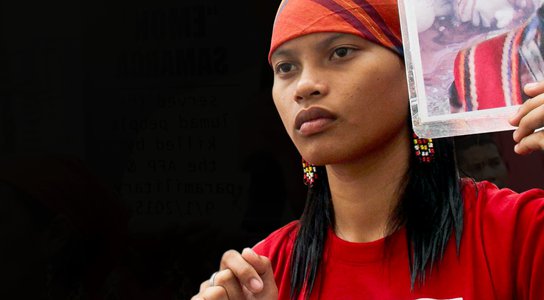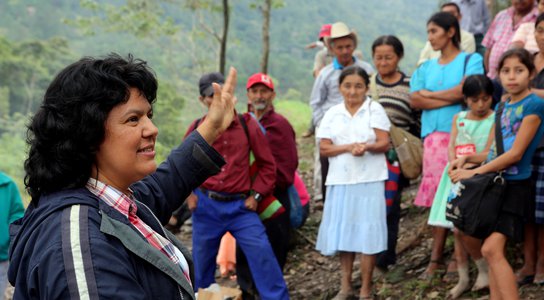Nowhere are you more likely to be killed for standing up to companies that grab land and trash the environment than in Honduras.
More than 120 people have died since 2010, according to Global Witness research. The victims were ordinary people who took a stand against dams, mines, logging or agriculture on their land –murdered by state forces, security guards or hired assassins. Countless others have been threatened, attacked or imprisoned.

In March 2016, armed men broke into environmental activist Berta Cáceres’ home in the middle of the night and shot her dead.
17-year-old Alan Garcia (main picture) survived a bullet to his chest. He was protesting against a hydropower dam on his community’s land when the military opened fire. Alan’s father was shot dead in the same attack.
Three years later, in 2016, high profile environmental activist Berta Cáceres was assassinated for demonstrating against the very same dam.
Who is behind the murders?
Following a two-year investigation into who’s behind these murders we can reveal how projects at the heart of conflicts are linked to the country’s rich and powerful elites, among them members of the political class.
Our investigation sheds light on the back-door deals, bribes and lawbreaking used to impose projects and silence opposition. We also scrutinise how the US is bankrolling Honduran state forces, which are behind some of the worst attacks.
Listen to our podcast about the investigation: available via Soundcloud and itunes
Powerful elites and chronic impunity
These crimes are being met with chronic levels of impunity. On rare occasions the triggermen are arrested, but the people who contract them are almost never punished.
“We have documented countless chilling attacks and threats, including the savage beating by soldiers of pregnant women, children held at gunpoint by police, arson attacks on villagers’ homes, whilst hired assassins still wander free among their victims’ communities.” - Billy Kyte, Global Witness campaign leader
Among those linked to the violence is Gladis Aurora López, the president of Honduras’ ruling party and one of the most powerful politicians in the country. Documents leaked to Global Witness reveal that the planned Los Encinos hydropower project in the west of the country is controlled by López’s husband, who aims to sell energy to the state despite appearing to have a clear, and illegal, conflict of interest.
Three indigenous activists who opposed the project have been killed – their bodies found dismembered and showing signs of torture.
We interviewed Roberto, an indigenous activist who has vocally opposed the Los Encinos project. He described how his community was evicted from their homes by a squadron of police, who also set fire to their crops.
US aid directed to police and military
As Honduras’ biggest aid donor, the US wields significant influence. In 2016, it contributed US$100 million in bilateral aid, which could be a huge boost to fighting poverty in a country which suffers the highest levels of inequality in the whole of Latin America. But tens of millions of aid dollars were directed to the police and military, both of which are heavily implicated in violence against land and environmental activists.
Meanwhile, the US continues to pump money into Honduran industry, despite concerns raised in Congress about the country’s dubious human rights record. The US embassy has been promoting ramped-up investment in Honduras’ extractive industries, for instance, with US mining giant Electrum already planning a US$1 billion investment.
How can the killing be stopped?
Our key recommendations for change include:
- The Honduran government must guarantee the protection of land and environmental defenders, properly resourcing and implementing those institutions responsible for their security
- The Honduran government, police and judiciary must bring the perpetrators of crimes against these activists to justice, and end the corruption behind abusive business projects
- The Honduran government must work with civil society to strengthen and implement laws that guarantee the consent of indigenous communities before projects are given the green light.
- The US must implement human rights conditions on aid to Honduras, condemn the killings of defenders and suspend investment in industries causing the violence until activists are better protected, crimes against them are prosecuted and communities are consulted before business projects go ahead
- Foreign investors and International Financial Institutions should stop any planned investments in the industries causing the violence - mining, dams, logging, tourism and large-scale agricultural projects.
Our report documents numerous attacks of Honduran activists. You can read their stories here:
Main image credit: Giles Clarke/Global Witness
Update 14 March 2017
Since first publication of our full report we have amended the text, as set out in the note on page 14 of the main report, to correct a family name and to remove a reference to a now dismissed money laundering investigation.


